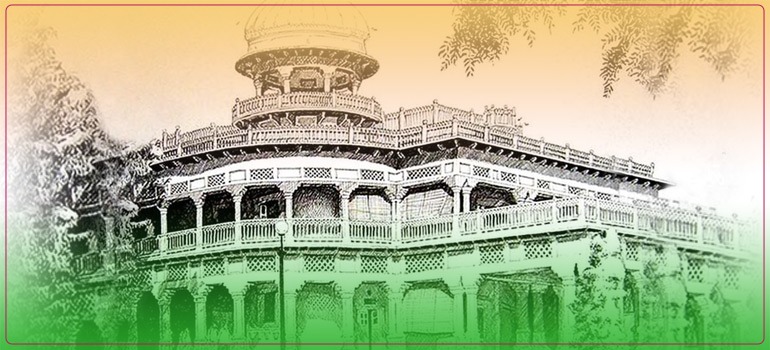Our member Mr. S. Ghosh speaks about his days at the political and literary hub Prayagraj, where he was brought up. He shares his experience of political decision makers and movements that took place there.
I was born in Allahabad, in UP which was later changed to Prayagraj. It is an inland peninsula surrounded by the rivers Ganges and Yamuna. Previously river Saraswati was also a part of it but later it had dried. We used to stay in an elite colony called Georgetown, which was mainly occupied by the white collared workers. It also housed many hospitals and clinics. It is still known for affluent surroundings and neighbourhood. A lot of Bengalis used to stay in Allahabad. Even people from Banaras had shifted there. Our home was about 2 km from Anand Bhawan, the grand estate of Motilal Nehru. Not far away was the Fort area, where the British military was barracked and consequently there was strict patrolling in Georgetown and neighbouring colonies. We lived in a large house in Georgetown built by my grandfather – a respected lawyer, who had migrated from Banaras.
Allahabad was a cosmopolitan city inhabited by a vast cross-section of intellectuals and academics in the shape of professors, jurists, musicians, writers, on the one hand and a vast body of shopkeepers and tradesmen, on the other hand who were mostly uneducated or semi employed. Being a pilgrim city as well because of the Sangam — the confluence of holy rivers, there was a great deal of visitors from all over India leading to intermingling of views and passions. National leaders and stalwarts like Abdul Kalam Azad, Govind Ballabh Pant, Subhash Chandra Bose, Vallabhbhai Patel, Lal Bahadur Shastri and many others paid frequent visits for rallies and meetings. Unpublicized conclaves were known to be taking place in Anand Bhawan. Motilal Nehru’s son, Jawaharlal Nehru and daughter Vijaylaxmi Pandit had their grounding in politics in this environment. Swaraj was in the air. The influence of Mahatma Gandhi was everywhere.
I was studying in Allahabad University in the year 1947. It was one of the most prestigious colleges and a literary hub for Hindi literary activities and had also played an instrumental role in Independence. As a young student going to high school and college in those years, I was subjected to the charged atmosphere surrounding me and my elders in the joint family. My father and uncles were senior citizens engaged in medicine and legal profession and they had a large circle of friends, clients and acquaintances. The family was privy to a lot of things going on, even though nothing was articulated indoors. We were taught to keep our lips sealed for mutual safety. Externally, there were periodical events like processions, slogan shouting in crowded areas of the city, and lathi charge by Indian sepoys and police when things went out of control. However, the press was allowed to function, albeit under censorship. But secret pamphlets and literature were clandestinely distributed.
It was difficult not to be influenced by the environment. Any chats between fellow students had to be hush-hush, and the concept of Swaraj was a notion with fanciful ideas in the student community. I went through exciting times with political events that culminated in Independence and the departure of colonial masters from our shores. Dramatic events like partition, framing of our Constitution, establishment of democracy and setting up of Rajya Sabha and Lok Sabha, creation of Supreme court and High Courts ensued and formed part of our national history.
To have lived in such momentous times is a privilege and experience never to be forgotten.
Categories
The impactful days of Independence

